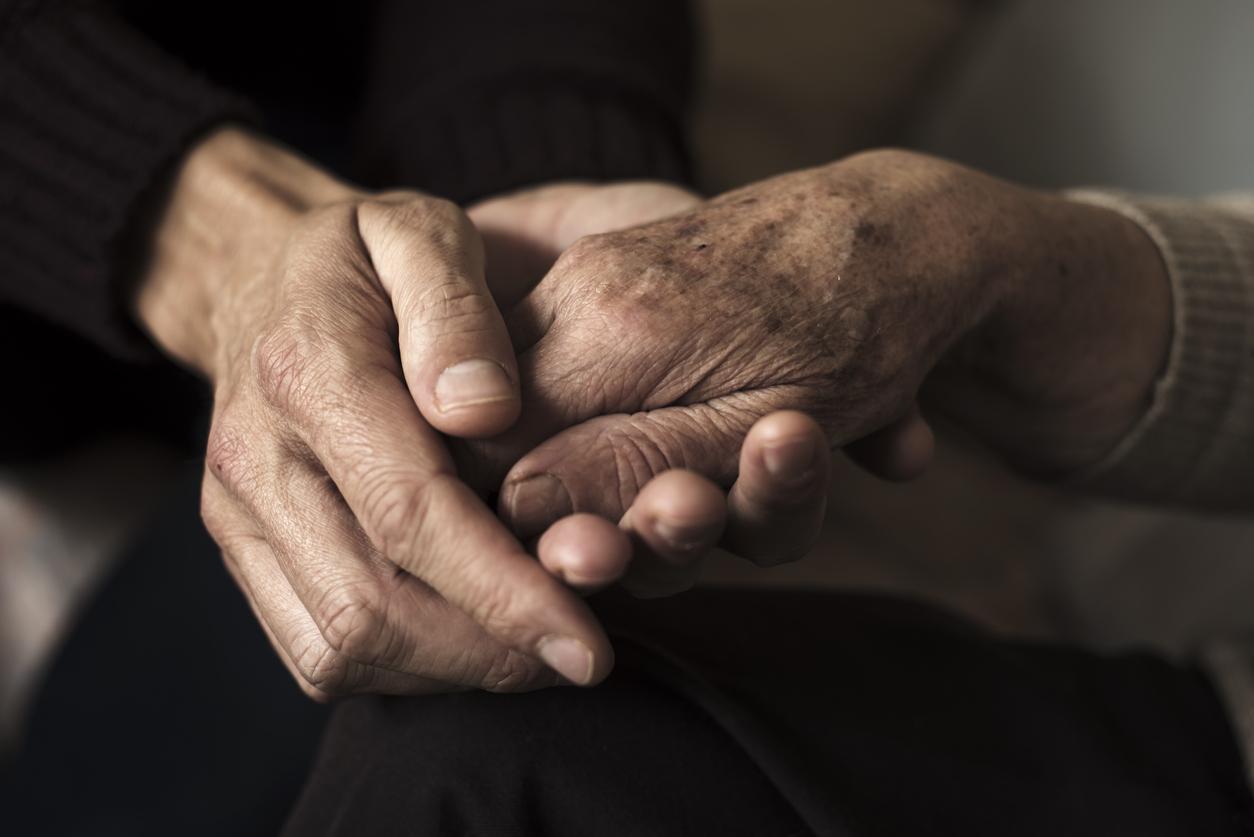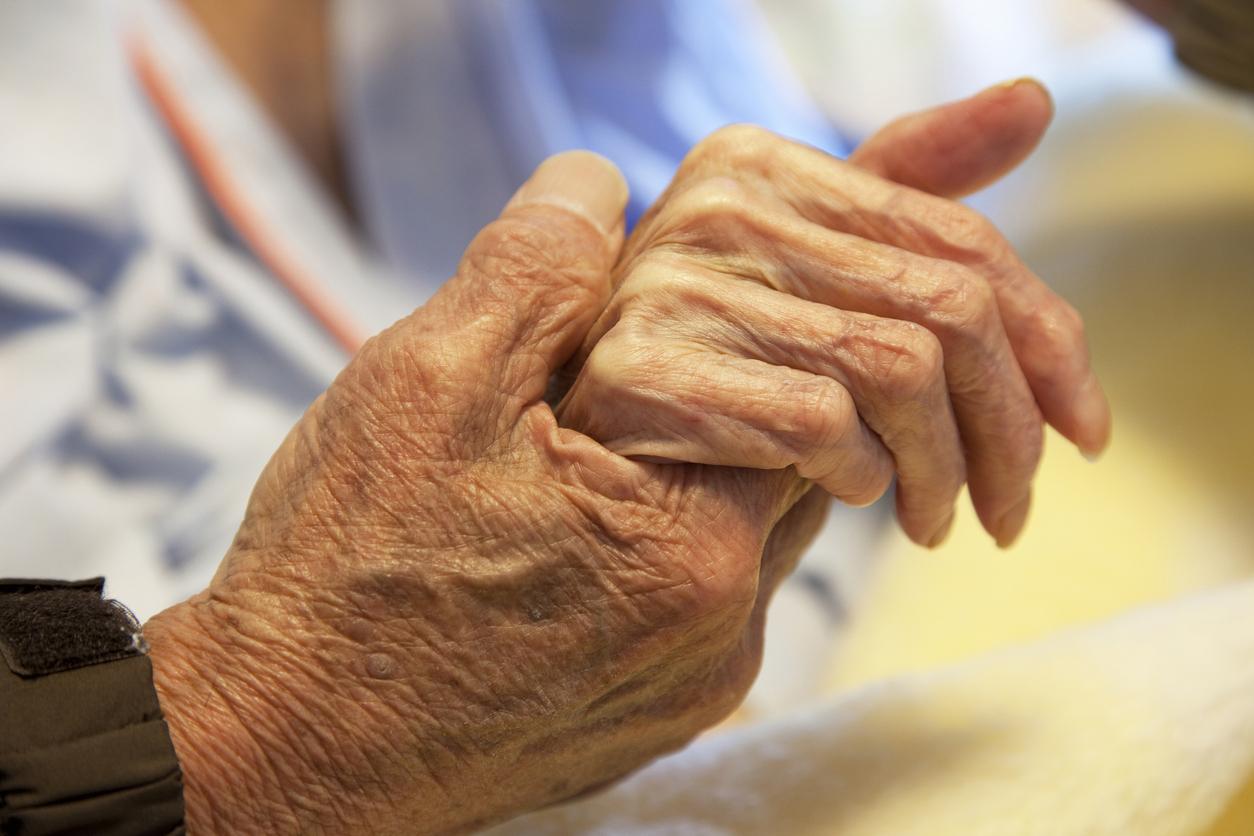In the United States, in despair over the death of her husband, a woman died 12 hours after him. She succumbed to stress cardiomyopathy, ill commonly known as “broken heart syndrome”.

A love story worthy of a movie. Last week, in the United States, two spouses married for 71 years died naturally 12 hours apart, reported Tuesday July 16 CNN which traces the history of the couple. Desperate for the death of her beloved, the woman was said to have suffered from “broken heart syndrome” or Tako-Tsubo.
Friday, July 12, at 2:20 a.m., Herbert DeLaigle dies at the age of 94. His wife Marylin, 88, died at 2:20 p.m. Ravaged by pain, she succumbed to stress cardiomyopathy. This disease, more commonly known as “broken heart syndrome” can cause symptoms close to a heart attack.
When they met, he was 22, she was 16.
Herbert and Marylin had met in 1947 in a café in Waynesboro (Virginia) where the young girl worked. He was 22, she was 16. “Marilyn Frances was working there. she would go out with me one day”, said Herbert on the tv channel WRDW in June 2018, on their 70th wedding anniversary.
Marylin accepted the invitation and Herbert took her to the movies. The two lovebirds saw each other for a year before Herbert proposed. During the Second World War, Marylin spent six years in Germany to be closer to her soldier husband. After 22 years in the American army for which he had fought in particular in Korea and Vietnam, Herbert had finally retired, says their joint obituary.
After a terrible emotional shock, the heart is bombarded by stress hormones
Marylin and Herbert leave behind six children, 16 grandchildren, 25 great-grandchildren and three great-great-grandchildren. Madly in love until the last day, as evidenced by their common death, the lovebirds have always made their entourage dream who writes in their obituary : “They are together in paradise. What an incredible love story!” Their funeral took place on Monday, July 15.
As romantic as it is, this story is far from being an exceptional case. It sometimes happens that in a couple or a family, a person dies of grief after the disappearance of a loved one (it is said that Theo Van Gogh died of sadness a few months after the suicide of his brother Vincent). Hence the name “broken heart syndrome”. Thus, this common expression can be interpreted literally. “It’s when someone gets shocking, terrible news, and there’s a massive release of these stress hormones in the blood, and then the heart is bombarded with it,” says Dr Matthew Lorber, a psychiatrist at the Lenox Hill Hospital in New York, to CNN.
On its website, the French Cardiology Federation warns against this evil, evoking an “unrecognized acute cardiovascular syndrome to be taken seriously”. But the death of the loved one is not its only trigger. A break can also play. Because the end of a long story leads to significant changes in everyday life, whether it is a change of residence or joint custody. These are often accompanied by a drop in the standard of living and intense emotional stress potentially harmful to heart health, especially in women, explains the Federation.
Women most affected by Tako-Tsubo
According to a study by the University of Zurich published in 2015, the mortality rate of Tako-Tsubo (3.7%) is almost as high as that of heart attacks due to myocardial infarction (5.3%) . It concerns about 2% of hospitalizations for the latter. The diagnosis is made once the infarction has been ruled out by coronary angiography. According to this study, Tako-Tsubo was triggered in 27.7% of cases by the loss of a loved one or a breakup, shocks often associated with intense fatigue.
Women are the first victims because their arteries, more sensitive to stress, spasm more easily. They are all the more weakened after the menopause, being no longer protected by their estrogens, hormones with a relaxing action.
Symptoms that resemble those of a heart attack
The coronary arteries are clogged, a large part of the heart is transiently paralyzed and the person affected may suffer from sometimes serious ventricular arrhythmias with the threat of sudden death, acute heart failure or even blood clots in the heart which can migrate into the bloodstream and cause other arterial accidents, a stroke for example. Thus, “among the symptoms, many can evoke a heart attack: sudden shortness of breath, sudden pain in the chest, arrhythmia, loss of consciousness, vagal discomfort”, summarizes Professor Claire Mounier-Vehier, President of the French Federation of Cardiology.
.















